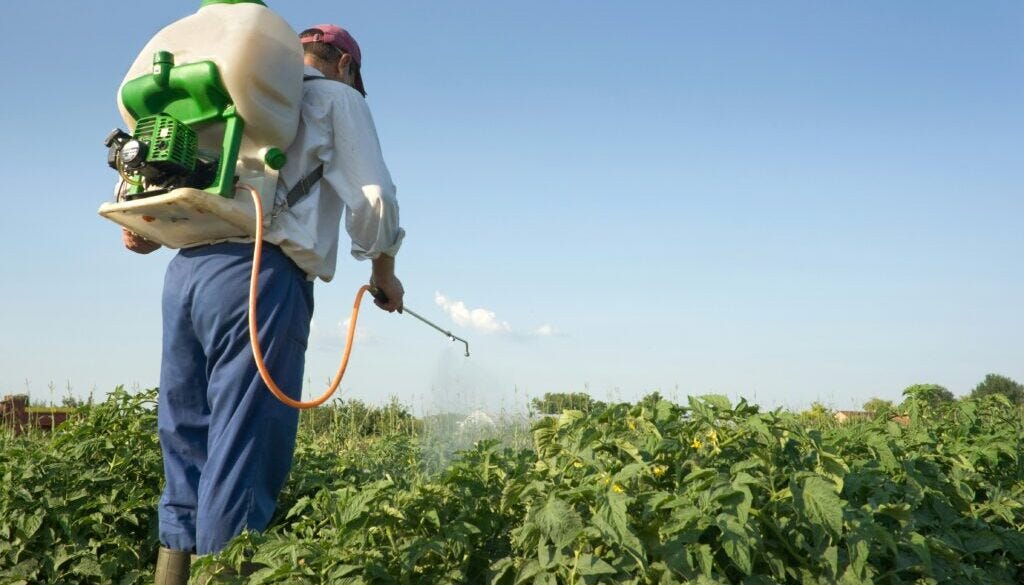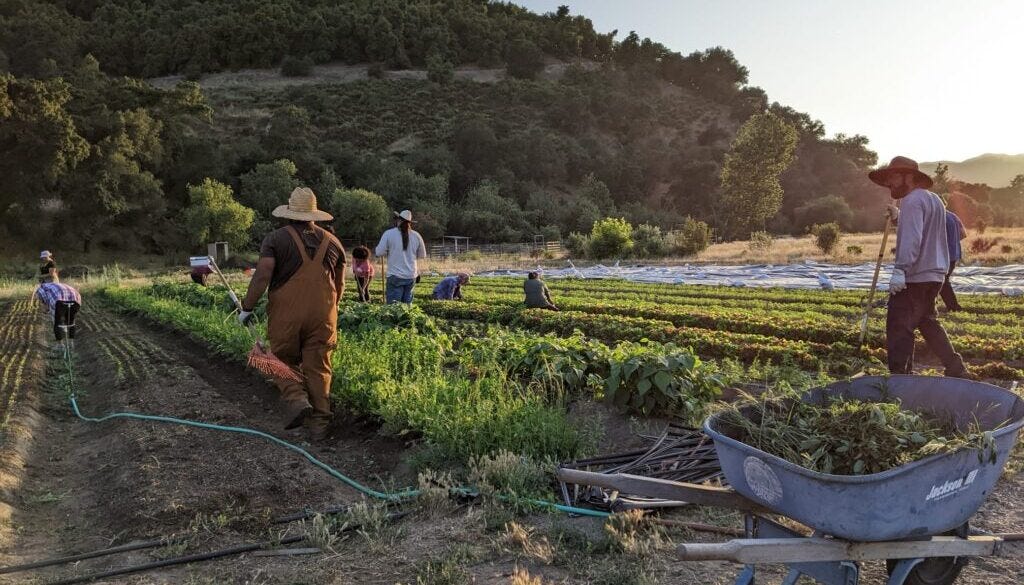Must-read recap: The New Lede's top stories
Trouble for food safety; Trump's air quality rollbacks; protecting species from pesticides; US slashes funds for small farmers; microplastics and antibiotic resistance; cancer in young adults.
Decision to axe advisory groups could spell trouble for US food safety
A Trump administration move to axe key food safety advisory committees could leave the public more vulnerable to food-borne illnesses, critics fear, particularly alongside current legislative efforts to undermine proposed safety regulations on food processors.
The decision to cut the committees, which brought together academics, industry researchers and consumer advocates to advise agencies on food safety, comes after hospitalizations and deaths from foodborne illnesses more than doubled last year, with most illnesses attributed to the same harmful pathogens that the groups were working to address. And it comes less than a month after Republican lawmakers introduced legislation that would block the implementation of a proposed new regulatory framework for reducing Salmonella contamination in raw poultry that was introduced under former President Joe Biden.
“It doesn’t appear that this administration at the highest level seems to care about food safety,” said Michael Hansen, a senior staff scientist for the group Consumer Reports who was serving on the National Advisory Committee on Microbiological Criteria for Foods (NACMCF). (Read the rest of the story.)
Americans to face more disease and death due to Trump’s air quality rollbacks, health experts warn
American families will face increasing rates of environmental-related illnesses and premature deaths, including lung and cardiovascular diseases, due to the Trump administration’s sweeping rollbacks of air quality regulations, health professionals warn.
The moves to slash roughly two dozen environmental and public health protections weaken rules dealing with a range of health threats, including mercury emissions from power plants and tailpipe pollution from vehicles.
Environmental Protection Agency (EPA) Administrator Lee Zeldin announced March 12 what the agency is labeling the biggest and greatest deregulatory push in US history.
“We are driving a dagger straight into the heart of the climate change religion to drive down cost of living for American families, unleash American energy, bring auto jobs back to the US and more,” Zeldin said in the announcement. (Read the rest of the story.)
Judge orders wildlife service to do more to protect imperiled species from pesticides
A federal judge ruled late on March 12 that the US Fish and Wildlife Service (FWS) must finish assessing the impact of five pesticides on endangered and threatened species, and that the agency had violated federal law with its “unreasonable” delay in completing the required analyses.
The five chemicals include the weed killers atrazine and simazine, and the insecticides chlorpyrifos, diazinon, and carbaryl.
The ruling ought to force the Trump administration to “protect imperiled wildlife from harms caused by pesticides,” said Jonathan Evans, environmental health legal director at the Center for Biological Diversity, which brought the suit.
“We’re glad the court found the federal government still has to follow the law,” including the Endangered Species Act (ESA), to protect imperiled wildlife, Evans said. (Read the rest of the story.)
“Chaos and panic” as US slashes funds for small farmers and food assistsance
Farmers and food assistance groups around the country were reeling last week amid a series of moves by the Trump administration to cut funding for programs that support small and disadvantaged farmers and provide food for low-income families.
The loss of funding, which totals more than $1 billion, was sending shock waves through a system set up to provide reliable markets and consistent income for farmers who supply healthy, unprocessed, locally grown fruits and vegetables and other foods to hunger assistance organizations and public schools.
Funding was spread through every US state but some of the largest amounts of program money were earmarked for farmers in California, Texas, New York, Florida, Illinois, Michigan and Georgia.
“This is a huge deal for small farmers,” said Ellee Igoe, co-owner of Solidarity Farm in southern California and director of operations for Foodshed, a San Diego County network of regenerative and organic farms supplying food to families in need. “We’re growing healthy food and providing it to local communities. And they are cancelling contracts without real reason. Out here, it feels like it is very politically motivated.” (Read the rest of the story.)
Microplastics boost antibiotic resistance in E.coli, lab study suggests
Co-mingling of tiny pieces of plastic with certain harmful bacteria can make the bacteria harder to fight with several common antibiotics, according to a new study that adds to global concerns about antibiotic resistance.
The study, published March 11 in the journal Applied and Environmental Microbiology, found that when Escherichia coli (E. coli) MG1655 bacteria, a widely-used laboratory strain, were cultured with microplastics (plastic particles less than 5 millimeters in size), the bacteria became five times more resistant to four common antibiotics than when they were cultivated without the plastic particles.
The findings may be particularly relevant for understanding links between waste management and disease, the study suggests. Municipal wastewater plants contain both microplastics and antibiotics, making them “hot spots” that fuel the spread of antibiotic resistance. (Read the rest of the story.)
The growing cancer crisis in young adults and a call to action
(Opinion columns published in The New Lede represent the views of the individual(s) authoring the columns and not necessarily the perspectives of TNL editors.)
Over the past several decades, cancer has been predominantly viewed as a disease of aging. Conventional wisdom suggests that the longer we live, the more opportunities our cells have to accumulate genetic mutations that can eventually lead to malignancies. Yet, this paradigm is being upended by a disturbing trend: Cancer is increasingly striking younger adults.
Recent data show that rates of early-onset cancers—those diagnosed in individuals under 50—are rising across multiple cancer types, with colorectal, breast, pancreatic, and esophageal cancers showing some of the most dramatic increases. This shift is prompting urgent questions about what could be fueling the trend. While genetics plays a role, the rapid nature of this rise suggests that environmental and lifestyle factors, including changes in diet and the gut microbiome, may be contributing in ways we are only beginning to understand.
Historically, colorectal cancer was considered a disease of older adults, and screening guidelines reflected this assumption. However, in 2021, the US Preventive Services Task Force lowered the recommended age for colorectal cancer screening from 50 to 45 in response to mounting evidence of rising incidence in younger populations. Similar concerns are emerging for other malignancies, including breast and pancreatic cancer, which are also appearing at increasing rates in adults under 50. (Read the rest of the opinion piece.)








